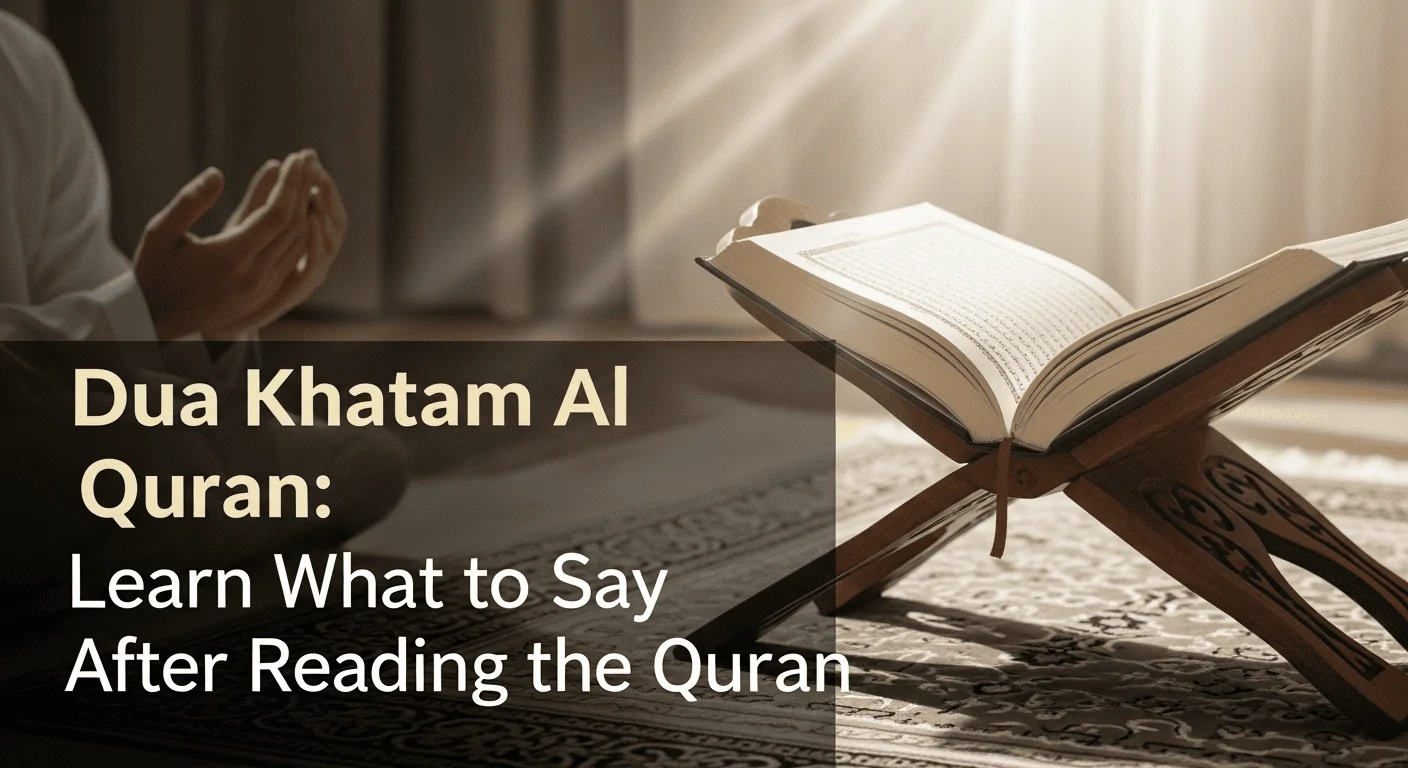In Islam, time is regarded as a precious gift from Allah, and He, in His sovereignty, has the power to choose certain periods and elevate them above others. Among the 12 lunar months, Allah has designated four months as sacred, with Rajab being one of them. What is Rajab in Islam? This month is given special importance, as it is one of the times that Muslims are encouraged to reflect on their actions, avoid sins, and recognize its sanctity.
In this blog, we will explore further details about. the month of Rajab uniqueness, its deeper significance and some favorable acts of worship to do during this month.
Why is Rajab a special month?
Rajab is one of the 4 sacred months in Islam, it holds a unique and significant place in Islamic history, particularly because it is the month during which the miraculous Isra and Mi’raj (Night Journey and Ascension) occurred. In this remarkable occurrence, the Prophet Muhammad (PBUH) was taken from Makkah to Jerusalem and subsequently ascended to the heavens, meeting Allah (SWT) there. It was on this journey that the Prophet (PBUH) received the commandment to establish the five daily prayers, a fundamental aspect of Islamic practice to this day.
This incredible event elevates Rajab to a month of reflection and remembrance, highlighting the significance of prayer and the profound bond between the Prophet (PBUH) and Allah (SWT).
The 4 sacred months in Islam
The four sacred months in Islam are mentioned in the Qur’an, though their names are not explicitly listed. However, they are named in the Sunnah, as narrated by Abu Bakrah (may Allah be pleased with him) in the Prophet’s (PBUH) Farewell Sermon.He said, “A year has twelve months. Four of these are considered sacred: three consecutive months – Dhu’l-Qa’dah, Dhu’l-Hijjah, and Muharram – and also the month of Rajab, which falls between Jumaada and Sha’baan.” (This was reported by both al-Bukhari and Muslim.)
These four months, with Rajab being one of them, hold a special place in Islam. They’re seen as sacred because of their unique significance in the Islamic tradition. Allah has set these months apart, making it a time when certain actions, especially sins, are more severe. In the Quran, Allah tells Muslims to avoid doing wrong to themselves during these months, emphasizing the need to avoid transgressions. The sacredness of these months is a call for Muslims to have reverence for time and the spiritual value of particular times for worship and reflection. These months also were established as periods of peace and avoidence of fighting, which shows the emphasis on maintaining harmony and peacefulness among the Muslim community.
What is Rajab in Islam: The month of reverence
Rajab holds a unique and holy place in the Islamic calendar, cherished for being sacred and spiritual. It is one of the four sanctified months in the Qur’an and Sunnah, in which Muslims are encouraged to preserve their sanctity through worship, contemplation, and avoiding sins. Rajab serves as a reminder of the special times Allah has chosen for His believers, where the connection with Him can be deepened.
Rajab of Mudar is specifically noted for its significance because the Mudar tribe did not tamper with its timing, unlike other Arabs who would alter the months depending on their state of war or peace. This practice of changing the timing of months is condemned in the Qur’an, where Allah says in Surah At-Tawbah (9:37): “The postponing (of a Sacred Month) is indeed an addition to disbelief…” Rajab was also referred to as “Rajab of Mudar” because the Mudar tribe held it in high esteem and respected it, leading to its association with their name.
In essence, Rajab is more than just a month in the Islamic calendar; it is a time to renew one’s commitment to righteousness, respect the sanctity of sacred times, and reflect on the deeper aspects of worship and faith.
Understanding the name of Rajab
The name Rajab comes from the Arabic root letters Ra’, jeem, and ba’, meaning to venerate or honor. Ibn Faaris in Mu’jam Maqaayees al-Lughah explains that “Rajabtu’l-shay’” means “I venerated it,” reflecting the reverence the Arabs had for this month. During the Jaahiliyyah (pre-Islamic era), Rajab was called Munassil al-Asinnah, meaning “the one that causes the sharp heads of weapons to be taken off,” as fighting was prohibited, and weapons were even disarmed. The month was so revered that it was also known as Rajab al-Murajjab (“extraordinarily honored”) and Rajab al-Asamm (“the Deafening and Silent Rajab”), emphasizing its sacredness as no fighting or clashing of weapons would occur during this time.
In addition to these cultural references, some scholars have pointed out a beautiful linguistic connection in the name Rajab itself. The letters of the name are said to symbolize profound meanings:
- Ra stands for Rahmah, the mercy of Allah.
- Jeem stands for Juud, the generosity of Allah.
- Ba stands for Birr, the kindness of Allah.
The Pre-Islamic practice of sacrifices in Rajab
During the Jaahiliyyah (pre-Islamic period), the Arabs used to offer sacrifices in Rajab as an act of worship to their idols. With the advent of Islam, this practice was abolished, as Islam teaches that sacrifices should only be offered to Allah. The tradition of offering sacrifices during Rajab, known as al-‘Ateerah, was part of this pre-Islamic custom.
Islamic scholars disagreed on whether al-‘Ateerah was completely abrogated. The majority of Hanafi, Maliki, and Hanbali scholars believed it was abrogated, based on the hadith: “There is no Fir’ and no ‘Ateerah” (Narrated by al-Bukhari and Muslim). However, the Shafi’i scholars considered it mustahabb (recommended), stating it had not been entirely abolished.
Ibn Hajar clarified that the Prophet Muhammad (PBUH) did not reject the concept of sacrifice but specifically abolished the practice of sacrificing in Rajab. Muslims are encouraged to offer sacrifices for Allah’s sake, but not as part of the pre-Islamic practices linked to Rajab.
When is the month of Rajab?
Rajab is the seventh month in the Islamic lunar calendar, nestled between Jumaada al-Thani and Sha’ban. Since it’s part of a twelve-month lunar year, its timing shifts each year in the Gregorian calendar, moving approximately 11 days earlier annually. Consequently, Rajab’s specific dates vary yearly, and moon sightings are needed to pinpoint the month’s beginning.
Rajab is especially significant as it is one of the four sacred months of Islam when Muslims are asked to remain in a state of high awareness of their actions and engage in worship, as the sanctity of time is emphasized
What is the importance of Rajab month
- One of the Four Sacred Months: Rajab is one of the four sacred months in Islam, during which Muslims are encouraged to avoid sin and focus on worship, as actions in these months hold greater significance.
- Reflection on Prayer: The Isra and Mi’raj event highlights the importance of the five daily prayers in Islam, making Rajab a month of reflection on worship and the connection with Allah (SWT).
- A Time of Peace: During pre-Islamic times, Rajab was respected as a time when warfare and violence were prohibited. This tradition of reverence continued in Islam, making Rajab a month emphasizing peace and tranquility.
- Sacredness and Reverence: Rajab is a month of honoring and respect, where Muslims are reminded to elevate their devotion to Allah and avoid sinful behavior.
Prohibited actions during Rajab
- Violating the Sanctity of the Sacred Months: Committing sinful acts within Rajab is more serious due to the sacredness of the month as Allah forbids the violation of the sanctity of such months (Surah al-Ma’idah).
- Engaging in Sinful Deeds: All forms of wrongdoing, whether through actions or beliefs, are prohibited, with sins being more severe in these sacred months (Surah at-Tawbah 9:36).
- Wronging Oneself: Muslims are advised not to wrong themselves during Rajab by engaging in activities that contradict Allah’s commandments, as the month demands heightened awareness and respect for its sanctity.
- Fighting and Violence: As part of the sacredness of Rajab, fighting and conflict were historically prohibited, and this principle continues in Islam, where Muslims are encouraged to maintain peace during this time.
Why is 13 Rajab special?
The 13th of Rajab carries great significance in Islamic history. It’s the birthday of Imam Ali ibn Abi Talib (RA), who was both the cousin and son-in-law of the Prophet Muhammad (PBUH). Also, this day is significant for the start of the White Days (Ayyam al-Bid) in Rajab, which are the 13th, 14th, and 15th of the month. The Prophet Muhammad (PBUH) encouraged fasting on these days, emphasizing their importance for spiritual reflection and devotion. So, the 13th of Rajab is a reminder of Imam Ali’s impact on Islam and the recommended acts of worship during this time
What to do in Rajab month
- Boosting Acts of Worship: Maintain regular prayers, recital of the Qur’an, and remembrance of Allah (dhikr) to enhance spiritual righteousness in this sacred month.
- Fasting on the White Days: Observe fasting on the 13th, 14th, and 15th of Rajab (Ayyam al-Bid), as recommended by the Prophet Muhammad (PBUH) for spiritual benefits.
- Repentance and Seeking Forgiveness: Observe Rajab as an opportunity for self-reflection, repentance, and asking Allah’s forgiveness in order to cleanse one’s soul and heart.
- Special Prayers: Perform additional voluntary prayers (nafl) to draw closer to Allah and seek His mercy during this blessed month.
- Charity and Good Deeds: During these sacred months, doing acts of charity, being kind, and helping others is even more valuable, so increase these good acts.
- Reflect on the Night of Isra and Mi’raj: Take time to reflect on the significance of Isra and Mi’raj during Rajab, especially in the context of the five daily prayers.
- Increase Knowledge: Spend time reading and learning more about the life of Prophet Muhammad (PBUH) and his companions. Register for an online Islamic course to increase your knowledge about their lives, teachings, and the principles that shaped Islam, giving you an in-depth learning experience at your convenience.
- Make extra supplications: Make du’a for self-improvement, well-being of family members, betterment of the Muslim ummah, and whatever desire you wish to fulfill.
How did the Prophet observe the arrival of Rajab?
The hadiths regarding the virtue of Rajab are weak and not authentic. There is no specific hadith from the Prophet Muhammad (PBUH) extolling the virtues of Rajab. While the Arabs in pre-Islamic times fasted during Rajab, Islam does not designate any special act of worship for this month. Rajab is one of the four sacred months, as mentioned by the Prophet (PBUH), but it is not distinguished by fasting, charity, or special prayers. It is part of the sacred months (الأشهر الحرم), and fasting during Rajab is not prescribed.
Umrah during Rajab
Performing Umrah in Rajab is permissible, as reported by Ibn Umar (RA) in Sahih al-Bukhari and Sahih Muslim, who said that the Prophet (PBUH) performed Umrah in Rajab. Although some Companions, including Aisha (RA), disagreed, Ibn Umar’s narration is reliable. Thus, performing Umrah in Rajab is supported by the practice of some of the righteous predecessors, though it is not a specific virtue of the month itself.
Common innovations associated with Rajab month
- Salaat al-Raghaa’ib: Some people perform this prayer on the first Friday night of Rajab, but it is a fabricated practice with no authentic foundation in Islam.
- Celebrating Isra and Mi’raj: Celebrating the 27th of Rajab as the night of Isra and Mi’raj is an innovation. The exact date of this event is unknown, and even if it were, the Prophet (PBUH) and his companions did not celebrate it. If it had been recommended, they would have observed it first.
- Salaat Umm Dawood: This prayer supposedly performed midway through Rajab, but it’s actually a new practice without roots in the Prophet’s traditions.
- Visiting Graves: Doing this specifically in Rajab is considered an innovation. After all, you can visit graves at any point during the year, not only in Rajab.
Boost your islamic knowledge with E-hoopoe
Discover the beauty and depth of Islamic teachings right from your own home with E-hoopoe. This innovative platform combines cutting-edge technology with contemporary teaching methods, acting as your personal mentor in understanding Islam more deeply. Whether you’re looking to study the Quran, explore the richness of authentic Hadith, or seek Islamic guidance for daily life, E-hoopoe is your go-to resource. It’s a user-friendly and comprehensive platform that provides tools and materials to nurture your spiritual growth. Immerse yourself in enlightening content, engage with interactive features, and enjoy the ease of learning at your fingertips. E-hoopoe isn’t just about acquiring knowledge; it’s about forging a stronger, more meaningful bond with your faith in a manner that resonates with today’s world.
Conclusion
In conclusion, understanding what is Rajab in Islam as a sacred month will help you appreciate it beyond just being another month in the Islamic calendar. Realizing that it is a time of reverence, reflection, and spiritual growth, Muslims are reminded to increase their acts of worship, seek forgiveness, and uphold a higher level of piety. Although Rajab is not marked by specific acts of worship like fasting or special prayers, its importance lies in its sanctity and the opportunity it provides to strengthen one’s connection with Allah. Understanding the true essence of Rajab encourages Muslims to focus on the deeper meanings of faith, emphasizing the need to respect the sanctity of time and adhere to the teachings of Islam.
To continue enhancing your spiritual journey, E-hoopoe offers a modern, simple way to expand your Islamic knowledge. With interactive learning, innovative resources, and engaging tools, this website helps you learn about the Qur’an, Hadith, and Islamic basics as they relate to daily life.
Join E-hoopoe today and empower yourself with insightful, readily accessible learning that brings you closer to your faith.
Frequently asked questions
- What is bid’ah is Islam?
Bid’ah refers to religious innovation where practices or beliefs are introduced into Islam that were not part of the initial teachings of the Prophet Muhammad (PBUH) or his companions.
- When is Rajab 2025?
The 1st day of Rajab in 2025 was on Wednesday, January 1st.










